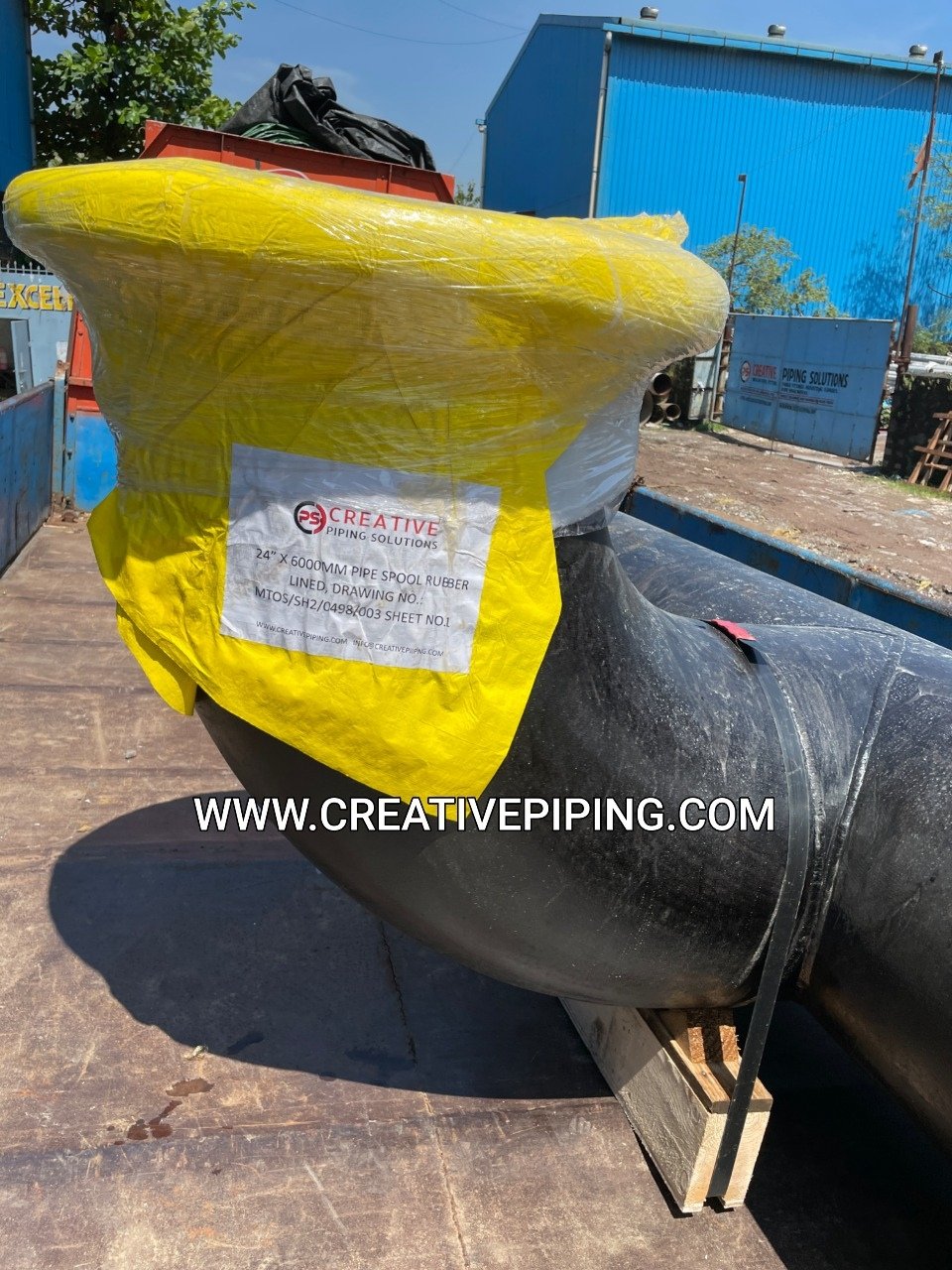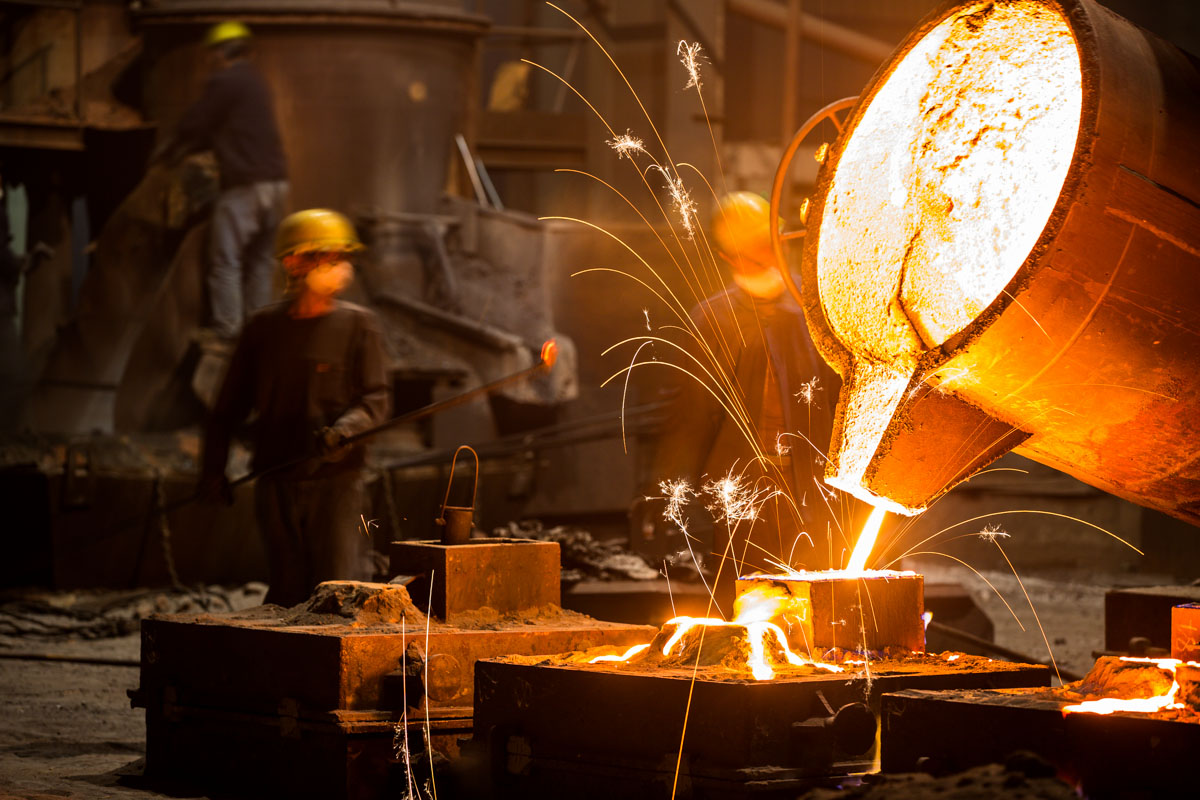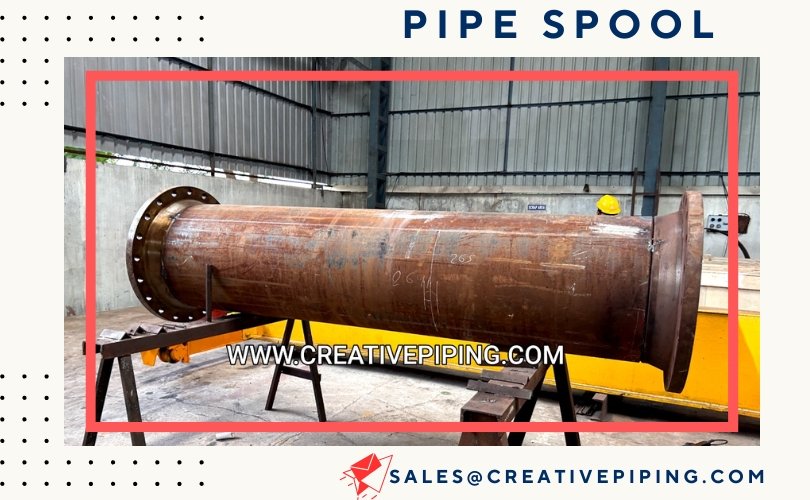A Comprehensive Look on Pipe Spooling and Fabrication By Creative Piping Solutions
Piping systems are the lifeline of any industrial facility — just like veins and arteries in the human body. Whether it’s transporting steam, oil, water, gas, or chemicals, industrial pipes ensure continuous and controlled flow throughout the plant. At the heart of this network lies an essential element: pipe spools.
Poorly executed piping fabrication can lead to system failures, production halts, and costly repairs. That’s why Creative Piping Solutions brings its expertise in pipe spool fabrication to ensure performance, safety, and long-term reliability in every spool we manufacture.

Address: Ground Floor Shop No. 8/12, Plot No. 25/33, Ardeshirdadi Street, C. P. Tank, Girgaon, Mumbai-400004 Maharashtra, India.
Call/WhatsApp: +919079367689
Website: www.creativepiping.com
Email: sales@creativepiping.com
GST No.: 27KOEPS5029M1Z6
What is Pipe Spooling?
Pipe spooling refers to the process of prefabricating sections of a piping system in a controlled workshop environment. These sections, or pipe spools, are then transported and assembled at the construction site with minimal on-site welding. Each spool typically includes:
- Pipes – main carriers of flow
- Flanges – connectors between pipes and equipment
- Fittings – such as elbows, tees, reducers, and more, directing the flow
This modular approach improves speed, safety, and quality while reducing on-site labor and errors.
Why Are Pipe Spools Crucial?
Pipe spools play a key role in refineries, petrochemical plants, power stations, desalination units, fertilizer plants, offshore platforms, and even municipal infrastructure like sewage systems. When pipe spools are fabricated incorrectly or under substandard conditions, the consequences can be catastrophic — including leaks, shutdowns, contamination, or even hazards to personnel.
Pipe Spool Fabrication Process at CPS
Our pipe spool fabrication follows international standards such as ASME B31.3, B16.5, B16.9, and Section IX of the ASME Boiler and Pressure Vessel Code. Here’s how we do it:
- Material Procurement – Raw pipes and fittings (as per ASTM/ASME standards)
- Cutting & Bevelling – Pipes are cut to precise lengths and beveled for welding
- Fitting & Tack Welding – Components are assembled and aligned accurately
- Welding – Certified welders perform butt welds or socket welds per WPS/PQR
- NDT & QA/QC – Radiography, MPI, UT, and other quality checks are performed
- Stress Relieving – Heat treatment eliminates residual stress
- Hydro Testing – Pressure testing is conducted when required
- Surface Treatment – Painting, galvanizing, or lining is applied to prevent corrosion
- Final Inspection & Packing – Delivered ready for bolt-up at the job site
Materials We Use in Pipe Spooling
At Creative Piping Solutions, we handle a wide range of metallic and lined pipe spool materials:
Metals:
- Carbon Steel (A106, A234 WPB)
- Stainless Steel (SS 304, 316, 310, 904L)
- Alloy Steel (Chrome Molybdenum Grades: A335 P11, P22, P91)
- Duplex & Super Duplex (UNS S31803 / S32750)
- Nickel Alloys (Inconel, Hastelloy, Monel, Alloy 20)
- Copper Nickel, Aluminium, Brass, Titanium
Special Applications:
- Rubber Lined Pipe Spools – For highly corrosive or abrasive services
- Flanged Pipe Spools – Pre-assembled with flanges for ease of installation
- PVC, HDPE, FRP/GRP Spools – For non-metallic system requirements
Advantages of Pipe Spooling
- Improved quality control under workshop conditions
- Reduced site welding and faster installation
- Lower labor costs and better time management
- Safer assembly with less field exposure
- Compliance with global standards and certifications
- Accurate documentation and traceability
Our Deliverables
CPS delivers fully documented and tested spools, including:
- Isometric Drawings
- WPS/PQR/Welder Certificates
- NDT Reports
- Hydrotest Certificates
- Marking & Tagging for traceability
- Custom packaging and protection for international shipping
End Conclusion:
Pipe spooling isn’t just a convenience—it’s a necessity in modern industrial construction. It offers consistency, safety, and cost-effectiveness when executed with precision. At Creative Piping Solutions, we bring decades of experience and global standards to every spool we fabricate.
Let us be your trusted partner for pipe spool solutions — delivering precision, performance, and professionalism.
Follow us on Linkedin



